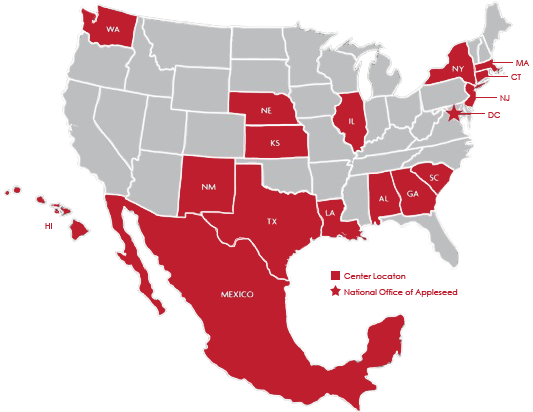For Immediate Release
BOSTON, May 29, 2019 – The Massachusetts Appleseed Center for Law and Justice applauds the Massachusetts Access to Justice Commission’s conclusions in its recently released report that courthouse cell phone bans create “unacceptable hardships” for court users and visitors. The Commission’s report recommended that cell phone bans “should be phased out in favor of alternative security measures” that prevent the misuse of cell phones in courthouses while allowing court users access to their devices.
These findings echo a July 2018 report by Massachusetts Appleseed that detailed how cell phone bans prevent people without attorneys from presenting critical evidence stored on their phones or referencing relevant legal resources during their legal proceedings. Appleseed also found that these bans create serious hardships for low-income court users who are often unable to coordinate childcare, transportation, and their absences from work without access to their cell phones.
“The burden of courthouse cell phone bans falls especially hard on people with business before the court who cannot afford to hire an attorney to represent them, many of whom are also members of other vulnerable populations,” said Deborah Silva, Executive Director of Massachusetts Appleseed. “I’m thrilled to see the Massachusetts court system take another step closer to ensuring justice for all and am grateful to the Access to Justice Commission’s working group for its thorough and thoughtful study of this issue.”
Cell phone bans exist in 56 court facilities across Massachusetts, but the Commission recommended that the bans be reviewed and eliminated in most courthouses while providing exemptions for self-represented litigants in all courthouses during the transition period. In high-security risk courthouses where restrictions are deemed necessary, the Commission recommended that the bans could be replaced with either in-court storage facilities or Yondr pouches (tamper-proof containers that the phone’s owner can carry but have to be unlocked by security personnel). The Commission’s report also emphasized that the court system’s portable electronic device policies should focus on regulating the use of devices rather than the possession of them.
Massachusetts Appleseed’s report, Cell Phones in the Courthouse, an Access to Justice Perspective, can be found on its website: www.massappleseed.org.
About the Massachusetts Appleseed Center for Law and Justice:
Massachusetts Appleseed’s mission is to promote equal rights and opportunities for Massachusetts residents by developing and advocating for systemic solutions to social justice issues. Appleseed uses research, collaboration, and advocacy to advance social justice across the Commonwealth. For more information about Massachusetts Appleseed, visit www.massappleseed.org. Follow us on Twitter: @MassAppleseed.
Media Contact:
Deborah Silva, Executive Director, Massachusetts Appleseed
617-482-9111, deb@massappleseed.org

